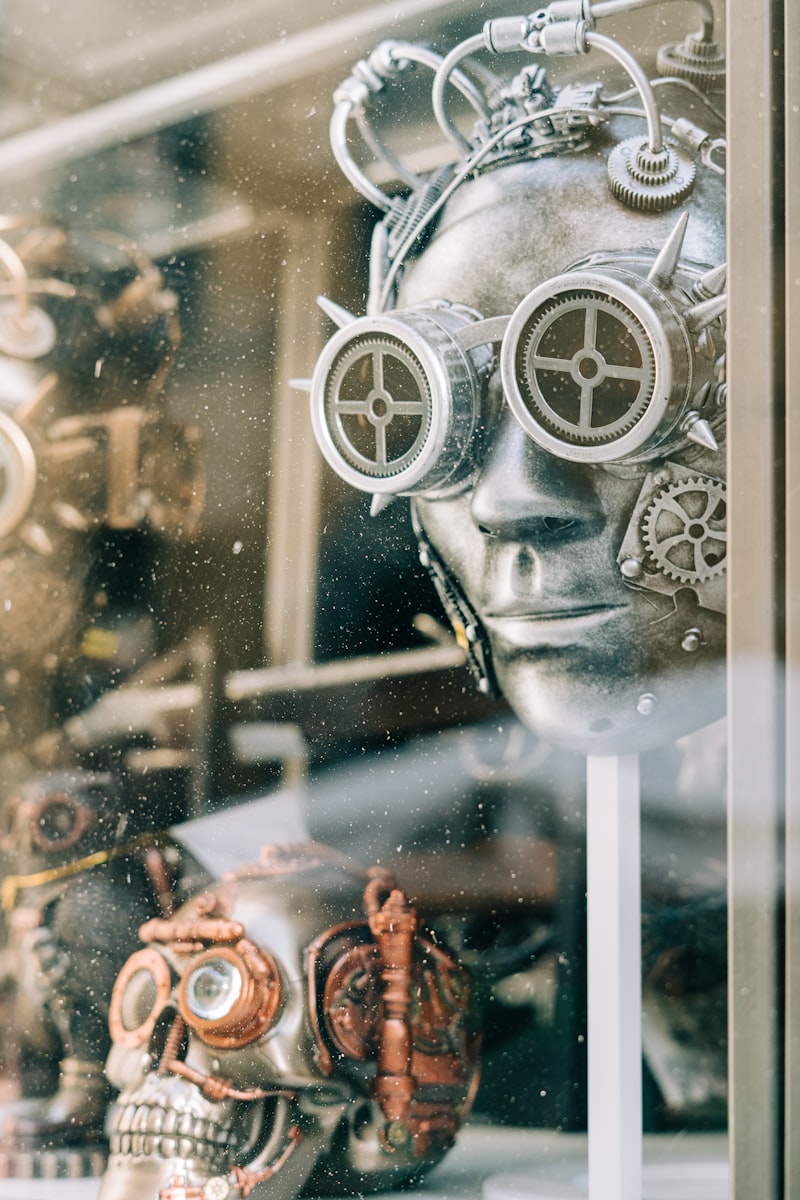Moreover, AI’s predictive analytics capabilities are transforming industries such as finance and healthcare. By analyzing vast amounts of data, AI can forecast market trends, predict customer behavior, and even diagnose medical conditions more accurately than ever before. This not only improves decision-making but also creates new job opportunities in data analysis, AI development, and cybersecurity.
However, the integration of AI into the job market isn’t without challenges. Concerns about job displacement are valid as AI replaces repetitive tasks traditionally performed by humans. Yet, history shows that technological advancements ultimately create more jobs than they replace, albeit in different forms. The key lies in upskilling and reskilling the workforce to adapt to the demands of an AI-driven economy.
AI is reshaping the job market by automating routine tasks, enhancing predictive capabilities, and creating new career paths. Embracing AI’s potential while addressing its challenges is crucial for individuals and industries alike. As AI continues to evolve, so too will the job market, presenting opportunities for those willing to innovate and adapt.
From Automation to Augmentation: AI’s Impact on Tomorrow’s Jobs
Artificial Intelligence (AI) isn’t just reshaping industries; it’s redefining the very nature of work itself. As we stand on the precipice of a technological revolution, the conversation shifts from fear of job loss to the potential for job enhancement through AI. Imagine a world where mundane tasks are automated, freeing up human creativity and ingenuity for more complex challenges.
In tomorrow’s workforce, AI acts not as a replacement but as a partner—an augmentative force that amplifies human capabilities. Take customer service, for instance. AI-powered chatbots handle routine queries swiftly and accurately, allowing human agents to focus on empathetic, high-touch interactions where emotional intelligence reigns supreme.
In the realm of healthcare, AI analyzes vast amounts of data to diagnose diseases earlier and with greater precision than ever before. It doesn’t replace doctors; instead, it equips them with powerful tools to make informed decisions swiftly and accurately, potentially saving countless lives.
The impact of AI extends beyond traditional sectors, infiltrating creative fields like marketing and design. Algorithms predict consumer behavior patterns with uncanny accuracy, guiding marketers to craft personalized campaigns that resonate deeply with their target audience.
Yet, amid these advancements, questions arise. Will AI create new jobs faster than it displaces old ones? Will it exacerbate inequality or pave the way for a more inclusive economy? These are not just questions of technology but of policy and societal values.
As we navigate this uncharted territory, one thing is clear: the future of work will be shaped by our ability to harness AI responsibly. Like a skilled conductor leading an orchestra, we must strike a harmonious balance between automation and augmentation, ensuring that AI serves humanity’s best interests without eclipsing our unique human capabilities.
Navigating the Future: AI’s Role in Reshaping Careers
Artificial Intelligence (AI) isn’t just a buzzword anymore—it’s fundamentally altering how we work and the careers we pursue. Imagine AI as a skilled navigator guiding the ship of modern careers through uncharted waters, reshaping industries and job landscapes as it charts new courses.
In today’s rapidly evolving world, AI is no longer confined to science fiction. It’s right here, transforming everything from healthcare to finance, and even creative fields like marketing and design. But what does this mean for your career? Well, think of AI as a powerful tool in your professional toolkit—a co-pilot that enhances your skills and opens up new possibilities.
Consider AI’s ability to analyze vast amounts of data in seconds, making predictions and recommendations that human minds might miss. This capability isn’t about replacing jobs; it’s about augmenting them. Just as GPS helps us navigate complex routes, AI helps professionals navigate complex data landscapes, enabling smarter decisions and innovations.
Imagine you’re an architect designing a sustainable cityscape. AI can crunch environmental data, predict energy needs, and even suggest materials that minimize carbon footprint—all while you focus on the creative aspects. It’s like having a brilliant assistant who handles the technical details, freeing you to excel in your artistic vision.
But it’s not just technical professions that benefit. AI is reshaping customer service, legal practices, and even education. Chatbots provide instant customer support, AI-powered legal research accelerates case preparation, and personalized learning platforms adapt to students’ needs in real time. The result? Enhanced efficiency and personalized experiences across industries.
Yet, amidst all this innovation, there are questions. How do we ensure AI is ethical and unbiased? How do we prepare the workforce for AI-driven changes? These are challenges we must address as AI continues to evolve.
AI isn’t just the future—it’s the present reshaping how we approach careers. Embrace it as your navigator through the seas of change, and you’ll find yourself charting a course towards a future where human ingenuity and AI collaboration redefine what’s possible.
Job Market Revolution: AI’s Influence on Employment Trends
Imagine AI as a conductor orchestrating a symphony of change across various sectors. It’s not just about automation anymore; AI is becoming integral in decision-making processes, from recruitment to strategic planning. Companies are leveraging AI-powered tools to streamline operations, boost productivity, and make data-driven decisions faster than ever before.
One of the most noticeable impacts of AI on the job market is its role in job creation and transformation. While some traditional roles may diminish due to automation, AI opens up new avenues for employment in fields such as data science, machine learning engineering, and AI ethics. These emerging roles require a blend of technical expertise and creativity, offering opportunities for those willing to upskill and adapt.
Moreover, AI is enhancing workforce efficiency by automating repetitive tasks, allowing professionals to focus on more strategic and value-added activities. This shift not only increases job satisfaction but also drives innovation within organizations.
However, the rise of AI isn’t without challenges. Concerns about job displacement and the ethical implications of AI are significant considerations. Companies are navigating these issues by implementing AI responsibly, prioritizing transparency and ethical guidelines in AI deployment.
Skills of Tomorrow: Adapting to AI in Today’s Job Market
Firstly, technical proficiency stands out as a cornerstone. While AI drives automation and data analysis, individuals adept in programming languages such as Python or R, alongside skills in machine learning and data mining, are highly sought after. These technical skills empower professionals to harness AI tools effectively, driving innovation and efficiency in their respective fields.
Moreover, critical thinking remains invaluable. AI excels at processing vast amounts of data and generating insights, yet human intuition and reasoning are irreplaceable. Professionals who can interpret AI-driven analyses, identify patterns, and make strategic decisions based on nuanced understanding will thrive.
Additionally, adaptability and continuous learning are crucial traits. The AI landscape evolves rapidly, rendering today’s skills obsolete tomorrow. Professionals who embrace lifelong learning, stay updated with AI advancements, and are open to mastering new tools and technologies will maintain relevance and competitiveness.
Furthermore, creativity and problem-solving are increasingly prized. AI can automate routine tasks, but creative thinking and the ability to innovate are uniquely human. Professionals who can conceptualize novel solutions, think outside the box, and apply AI creatively will drive growth and differentiation.
Lastly, emotional intelligence (EI) emerges as a pivotal skill. As AI enhances operational efficiencies, roles demanding EI—such as leadership, customer relations, and team collaboration—become more critical. Professionals who can navigate complex human interactions, empathize, and lead with emotional insight will excel in fostering productive environments.
AI Disruption: Redefining Roles and Careers Worldwide
Artificial Intelligence (AI) isn’t just transforming industries; it’s reshaping the very fabric of careers worldwide. Imagine a world where machines not only assist but innovate alongside humans, revolutionizing how we work and what skills are valued.
In today‘s landscape, AI’s impact spans across sectors once thought immune to automation. From healthcare to finance, AI algorithms analyze data faster and more accurately than humanly possible, predicting trends and optimizing processes with unprecedented efficiency. This isn’t science fiction anymore—it’s the reality reshaping job descriptions globally.

But AI disruption isn’t limited to operational efficiencies. It’s opening doors to entirely new careers. Ethical AI specialists ensure algorithms operate fairly and transparently, guarding against biases that could perpetuate inequality. Meanwhile, AI trainers teach machines how to learn, shaping the next generation of intelligent systems.

AI disruption isn’t a threat but a catalyst for evolution. It challenges us to redefine our roles, rethink traditional career paths, and embrace a future where humans and machines collaborate synergistically. As we navigate this transformative era, one thing is clear: those who embrace AI’s potential will thrive in reshaped industries, while those who resist risk being left behind.
The Rise of AI: Transforming Industries and Employment
In healthcare, AI technologies are pivotal in diagnostics, leveraging vast datasets to identify patterns and anomalies that human eyes might miss. From early detection of diseases to personalized treatment plans, AI empowers healthcare professionals to deliver more accurate and timely care. Moreover, AI-powered robots assist in surgery, performing tasks with precision that surpasses human capabilities, ensuring safer procedures and faster recovery times for patients.
Beyond traditional sectors, AI is disrupting finance through predictive analytics and algorithmic trading, enabling faster decision-making and risk management. Customer service is also evolving with AI chatbots, providing instant responses and personalized interactions, enhancing customer satisfaction and retention.
AI’s influence extends into education, where personalized learning platforms adapt to individual student needs, improving engagement and educational outcomes. In transportation, AI powers autonomous vehicles, promising safer roads and efficient logistics.
However, as AI reshapes industries, questions about its impact on employment arise. While AI eliminates some routine tasks, it also creates new job opportunities in AI development, data science, and cybersecurity. The future of work will likely require skills in collaboration with AI systems, emphasizing creativity, critical thinking, and adaptability.
The rise of AI represents a transformative shift across industries, optimizing processes, and unlocking new potentials. Embracing AI’s capabilities while addressing its implications on the workforce will be crucial in navigating this technological revolution.

